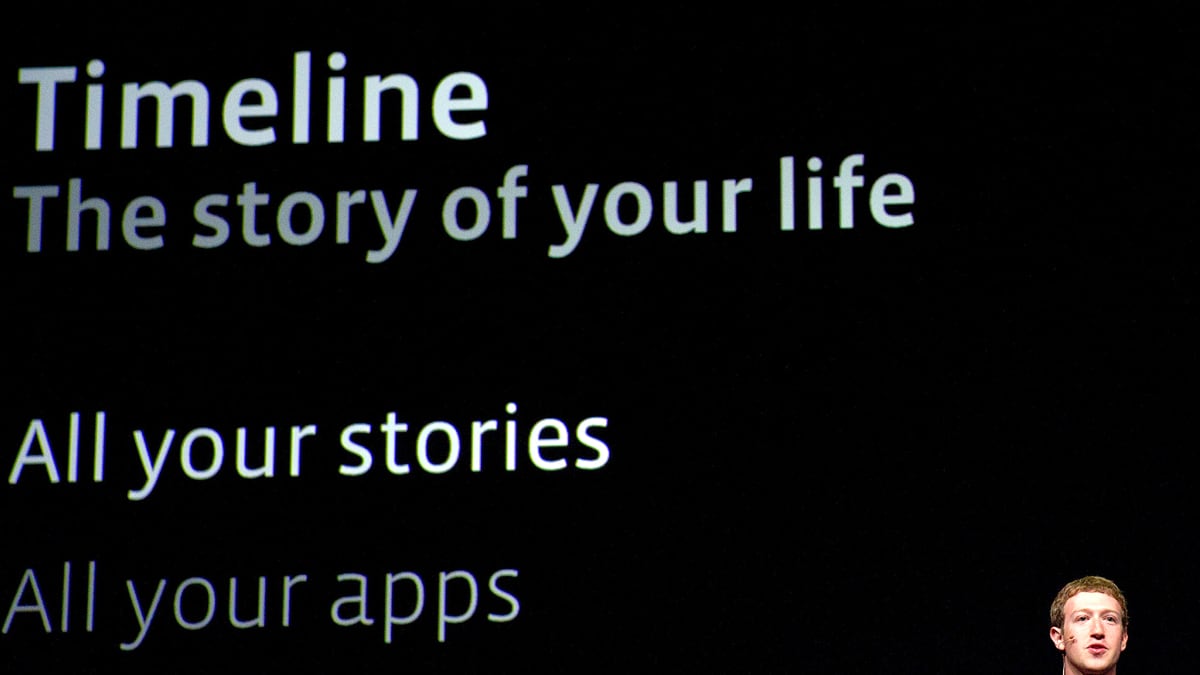At its annual f8 developer conference Thursday, Facebook announced... wait for it... yes, another redesign of its site, along with new rules for sharing with friends.
Users still trying to figure out the new integrated messaging service, the improved “lists controls,” and “top stories,” will soon see radically revamped profile pages, along with a legion of new Facebook apps that want to get you to share new information about yourself. Will this just be the Facebook privacy crisis du jour? Or has the company been scared straight by the threat of regulation, or even competition?
The biggest change Facebook announced is a new way to share information using third-party applications on the site. In the past, users who installed apps such as FarmVille or Horoscopes typically had a stream of pointless updates sent to their friends’ newsfeed under their name, leading to sheepish apologies to vaguely annoyed friends.
Under the new system, these app updates will go to a less prominent, real-time feed on the right-hand side of the page (called “Ticker”) and to newly designed profile pages (redubbed “Timelines”) where your friends can amble by and see what you’re up to if they so desire. The theory seems to be that many users were turned off of apps in the past, but maybe they’ll be willing to share more on Facebook if the apps are a little less pushy.
For Facebook, of course, the point is for you to provide them more data about your life, which they can use to serve you ads you’ll be more likely to engage with (which makes them more money). But there’s potentially real value here too, if people can discover ways to share their music-listening and cooking habits with friends in a perhaps lighter-touch way.

But will users get it? When they’re invited to install a new Spotify app, will they understand that what they’re listening to will be put into their friends’ Tickers and their own Timelines? Will they even understand what Tickers and Timelines are? One of the problems Facebook has had in the past is that its constantly changing formats and privacy settings left users unclear about what they were sharing, and with whom.
Certainly, this new way of sharing seems at first glance to be a considerable improvement over some of Facebook’s privacy failures in the past, where information was disclosed by default without any user interaction (Beacon and Instant Personalization spring to mind).
With these new apps, users will have to affirmatively click a consent box that gives the app permission to share information. But the buzzwords during the introduction of these tools were “social-by-design” and “frictionless,” suggesting a strong urge to get users to share without bogging them down too much in the details. And that’s understandable—as we saw with Microsoft Vista, too much detail and too many prompts can bother users as well.
But since a one-time click will grant a persistent permission to any app to collect and disclose personal information on your behalf, Facebook will have to make sure its users fully understand the implications of these new apps before roll-out, or risk another round of privacy backlash.
In general, so long as consumers understand what they’re doing and with whom they’re sharing, simply offering new social avenues users can opt to use shouldn’t be controversial. And many users will be excited about new ways to share (in a less intrusive way) what they’re watching, listening to, and reading with their friends. Of course, down the road, it will be interesting to see how consumers react if the value proposition for Facebook apps becomes all too stark—and arguably coercive.
If Facebook succeeds in becoming a hub for more and more media consumption, will we be forced to share with the network and our friends just in order to access content? Today, Spotify costs $5 to download from its website, but you can be invited for “free” by connecting through Facebook. The Wall Street Journal Facebook app already lets you access content that would otherwise be behind its pay wall.
So long as the terms are clear, I’m generally fine with companies letting people pay for content with their data instead of with money (or with Facebook “credits,” whatever those are)—so long as there are meaningful, competitive options to engage with content off Facebook on a more anonymous basis. But for people who already lament that their relationship with Facebook is increasingly one of addiction rather than affection, this push to share more, more, more could add more grist to their frustration.
Another privacy concern with the new Facebook is that Timeline makes it a lot easier for others to access things you shared on Facebook a long time ago. Today, if someone wanted to see what I did on Facebook four years ago, he or she would have to laboriously plod through the last four years of my Facebook activity—in Timeline, friends can click straight through to 2007 to revisit old status updates and see old pictures you were tagged in.
For those who think of Facebook as a relatively ephemeral experience, they may be surprised to see that old Facebook activity can now be unearthed with comparable ease. In an age where “Facebook stalking” is common parlance and prospective employers are increasingly trying to dig up social networking data on prospective hires, users might want to revisit their Timelines to cull data that has, shall we say, outlived its usefulness.
Fortunately, Facebook has designed Timelines to give users the ability to curate their own pages and will be giving users some lead time before Timelines are available to your friends; again, it’s just a matter of Facebook providing enough education to users so they understand the changes in place.
With these changes, Facebook is clearly trying to get users to share a lot more data about themselves through (and with) Facebook. But if they’re just providing a transparent and engaging experience that people want to use to interact with friends, that’s not really a privacy problem.
The key will be whether users understand the new design and consent flows, which haven’t always been the company’s strong suit. But if what’s going on is clearly messaged to consumers, Facebook should be able to avoid the privacy uproars it’s had in the past. At least, until the next redesign.





